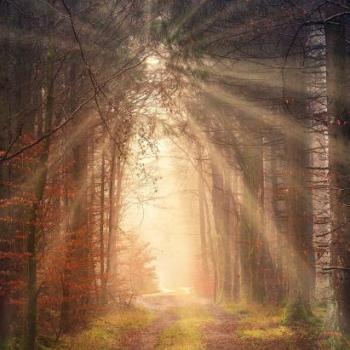
One of the first things I encourage people to do in the interspiritual mapping process is to write their interspiritual life story. It offers clues about interests, needs, values, aspirations and distastes. What you don’t like is often as important as what you like. Here are a few questions to help you write your interspiritual life story.
What is Your Religious or Spiritual Background?
Were you raised in a religious or spiritual environment? If yes, what did you like about that? What didn’t you like? Did anything stay with you? Think through every aspect of the religious or spiritual environments, including their central tenets, community, and rituals.
What did your parents teach you about spirituality and religion if you weren’t raised in a religious or spiritual environment? What did you learn on your own? Was a spiritual spark lit when you were young, or did your interest develop over time?
What Ideas and Practices Have Attracted You?
What spiritual ideas and practices have attracted you over the years? I, for one, tried everything from Native American sweat lodges to various meditation practices. Each new concept and practice offered something new to experience and think about. I also read countless books and found nuggets of wisdom in each of them. What about you?
Have You Had Any Spiritual Experiences?
There are two primary spiritual awakenings. One happens when people crash and burn. While usually unpleasant, it can be eye-opening and encourage people to re-evaluate their priorities. The other occurs when people have peak spiritual experiences, such as finding the light or merging into oneness. Both have value for people who are on the spiritual path. Have you had some experience that falls into either one of these two categories? How did it feel? What did you learn? What stayed with you afterward? Explore the impact.
What Do You Consider to Be Spiritual?
Definitions of spirituality differ widely. I’ve offered a definition of my own in this publication. What is yours? Has it changed over the years? A definition is important because it frames what you consider spiritual. Suppose you only consider peak experiences spiritual. In that case, your encounters will be few and far between. In contrast, if you think finding beauty in the mundane is a spiritual exercise, you will get countless opportunities to practice.
What Gives Your Life Meaning, Purpose and Direction?
If you haven’t already, uncover the values that drive your behavior. What helps you wake up in the morning? Do you feel like there is a higher purpose that guides you? Most people have values, although some are unaware. The most important thing when you answer this question is to listen within. Don’t parrot what you’ve learned from others. Dig deep and figure out what your values are.
What Limitations Have You Encountered?
What limitations have you encountered in spiritual and religious communities and philosophies? Most people who are interested in interspirituality have had experiences where the ideas or practices they used to abide by no longer make sense. Such events often present themselves as turning points in life and open people up to new possibilities.
When Did You Open Up to Interspirituality?
As stated in the previous paragraph, opening up to interspirituality often coincides with experiences of limitations. People think, “I don’t like this. What else is out there?” In other cases, the interest is driven by pure love and attraction. People exclaim, “This is fascinating. I need to learn more!” What is your story? When did you get interested in ideas and practices from more than one tradition? Why? What was it that attracted you? Answer this question honestly. It will help you build a solid interspiritual practice.
Spiritual Practices?
Looking back at your life, did you regularly engage in any spiritual practices? If yes, what kind of practices? Are you still practicing? Answering this question, some people realize that they got tremendous value out of methods that they no longer engage in. Others discover that they are already involved in numerous spiritual practices without labeling them as such. One woman I worked with realized that her practice of sitting out on the porch every morning was much more contemplative and meditative than she had realized. With that in mind, spiritual practices can be both ritualized—think prayer and meditation—and spontaneous—think gratitude and conversations with a higher power.
The Value is There
When I wrote my spiritual memoir in 2019, it was the most eye-opening exercise I’ve ever engaged in. Seeing clearly—in some cases for the first time—the throughlines, awakenings, and mistakes has informed my spiritual practice ever since and helped me be true to myself. I hope writing your interspiritual life story will do the same for you.
Gudjon Bergmann
Author and Mindfulness Teacher
Amazon Author Profile
Recommended books by GB:
- Monk of All Faiths: Inspired by The Prophet (fiction)
- Spiritual in My Own Way (memoir)
- Co-Human Harmony: Using Our Shared Humanity to Bridge Divides (nonfiction)
- Experifaith: At the Heart of Every Religion (nonfiction)
- Premature Holiness: Five Weeks at the Ashram (novel)
- The Meditating Psychiatrist Who Tried to Kill Himself (novel)
Picture: CC0 License












